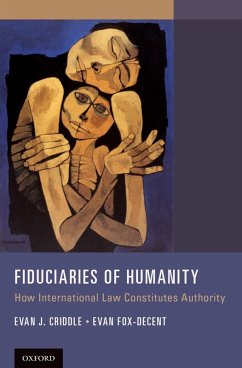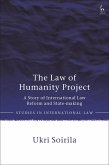Public international law has embarked on a new chapter. Over the past century, the classical model of international law, which emphasized state autonomy and interstate relations, has gradually ceded ground to a new model. Under the new model, a state's sovereign authority arises from the state's responsibility to respect, protect, and fulfill human rights for its people. In
Fiduciaries of Humanity: How International Law Constitutes Authority, Evan J. Criddle and Evan Fox-Decent argue that these developments mark a turning point in the international community's conception of public authority. Under international law today, states serve as fiduciaries of humanity, and their authority to govern and represent their people is dependent on their satisfaction of numerous duties, the most general of which is to establish a regime of secure and equal freedom on behalf of the people subject to their power. International institutions also serve as fiduciaries of humanity and are subject to similar fiduciary obligations. In contrast to the receding classical model of public international law, which assumes an abiding tension between a state's sovereignty and principles of state responsibility, the fiduciary theory reconciles state sovereignty and responsibility by explaining how a state's obligations to its people are constitutive of its legal authority under international law. The authors elaborate and defend the fiduciary model while exploring its application to a variety of current topics and controversies, including human rights, emergencies, the treatment of detainees in counterterrorism operations, humanitarian intervention, and the protection of refugees fleeing persecution.
Dieser Download kann aus rechtlichen Gründen nur mit Rechnungsadresse in A, B, BG, CY, CZ, D, DK, EW, E, FIN, F, GR, HR, H, IRL, I, LT, L, LR, M, NL, PL, P, R, S, SLO, SK ausgeliefert werden.
Hinweis: Dieser Artikel kann nur an eine deutsche Lieferadresse ausgeliefert werden.









